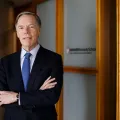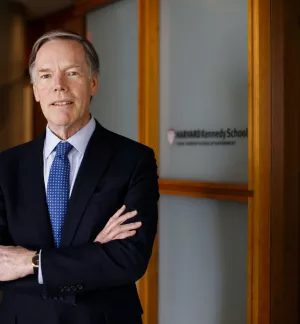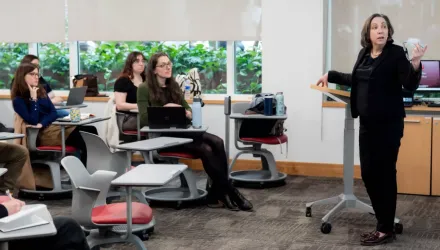ONE WEEK later, Vladimir Putin’s extraordinarily powerful, provocative, acerbic, and self-pitying speech justifying the annexation of Crimea still resonates.
That speech exposed three myths about Putin’s rule and ambitions.
Myth One: Russians as victims of history. In Putin’s eyes, the Russian people were “robbed” and “plundered” as victims of the collapse of the Soviet Union. The Russian nation, he said in his speech, may be “the biggest ethnic group in the world to be divided by borders.”
Here is the reality he did not mention — the Russian Federation inherited the bulk of the USSR’s assets when it collapsed on Dec. 25, 1991. Of the 15 new countries that emerged, Russia became in legal terms the “continuation state.” It thus secured the powerful UN Security Council seat, eventually all the nuclear weapons and major military assets, nearly all of the Soviet Embassy properties, the space program, and significant gold reserves. The White House, where I worked on Soviet affairs at the time, supported a strong Russia as the best guarantor of future stability.
But Russia did not get the right to “protect” ethnic Russians in Ukraine, Kazakhstan, Moldova, Belarus, Estonia, and Latvia. This is the most troubling aspect of Putin’s policy — the irredentist claim to defend Russians throughout the territory of the former USSR. It is dangerous and incendiary, threatening to upend the historic peace in Europe since the Cold War’s end.
Myth Two: Misguided US policies forced Putin to react.Putin warned the United States in his speech, “If you compress a spring all the way to its limit, it will snap back hard.” Even some prominent Americans have contended that NATO expansion and the Kosovo War contributed to Putin’s supposed humiliation and aggressive, anti-US behavior.
Here is the reality. Presidents George H.W. Bush and Bill Clinton went overboard to help Boris Yeltsin and then Putin to succeed. The United States delivered billions in support of Yeltsin’s reforms, inspired a substantial IMF/World Bank package, and brought Russia into the G-8 in 1994. But Yeltsin’s government failed and he left Russia in a perilous state. After 9/11 when Putin said he wanted greater cooperation with the West, George W. Bush helped to create the NATO-Russia Council. I served on that council as US ambassador to NATO. But a cynical, suspicious Putin did little to meet us halfway on major issues.
We were right to expand NATO and the European Union as they were critical in sustaining permanent democracies in Eastern Europe. Without NATO’s security umbrella, Putin would undoubtedly be threatening Estonia and Latvia right now after digesting Crimea. Poor Russian leadership, not American policy, is the reason for Russia’s slide as a declining global power.
Myth Three: Putin’s on a roll, and we can’t stop him. President Obama is playing an admittedly weak hand against Putin early in their high stakes poker match. Obama made the right decision not to respond militarily. He is working with Europe to support Ukraine, sanction Putin’s cronies, and threaten more debilitating measures should Putin invade Eastern Ukraine.
But, curiously, Obama declined to meet NATO Secretary General Anders Fogh Rasmussen in Washington last week and has not called a NATO heads of government summit in Brussels this week. These are missed opportunities. Obama is the leader of the NATO alliance and needs to demonstrate publicly to Putin the line he cannot cross in Europe. That is the surest path to peace.
Obama’s ultimate test will be on the most important principle at stake — does Ukraine have a right to choose its future? Some US opinion leaders advocate that Ukraine agree to become a neutral state to resolve the crisis. But this gives away far too much to Putin, rewarding him for his aggression.
As in the Cold War, the more effective strategy is for the United States to stick to its defense of freedom and wait out Putin. NATO and the EU are stronger than the Russian dictator in right and might as well as spirit.
Burns, Nicholas. “Three myths about Putin’s Russia.” The Boston Globe, March 26, 2014





